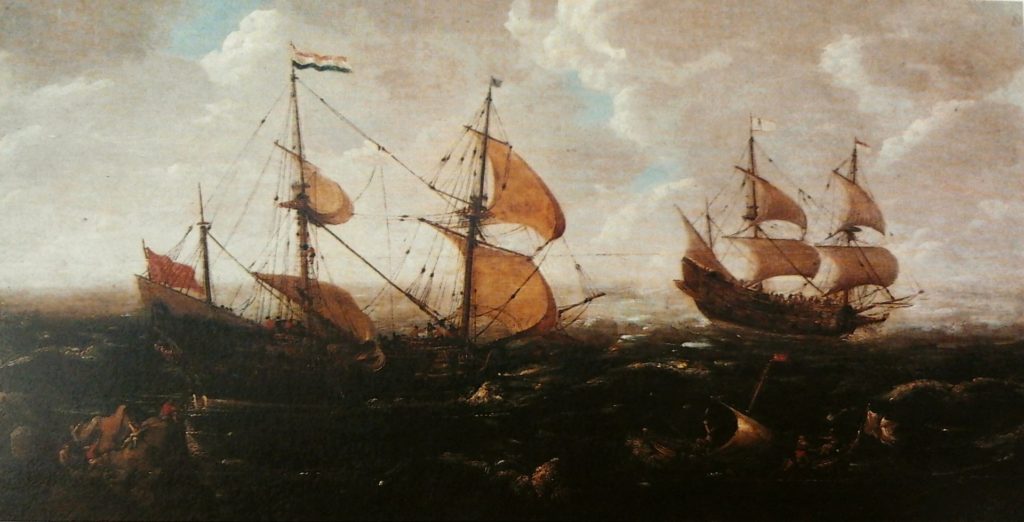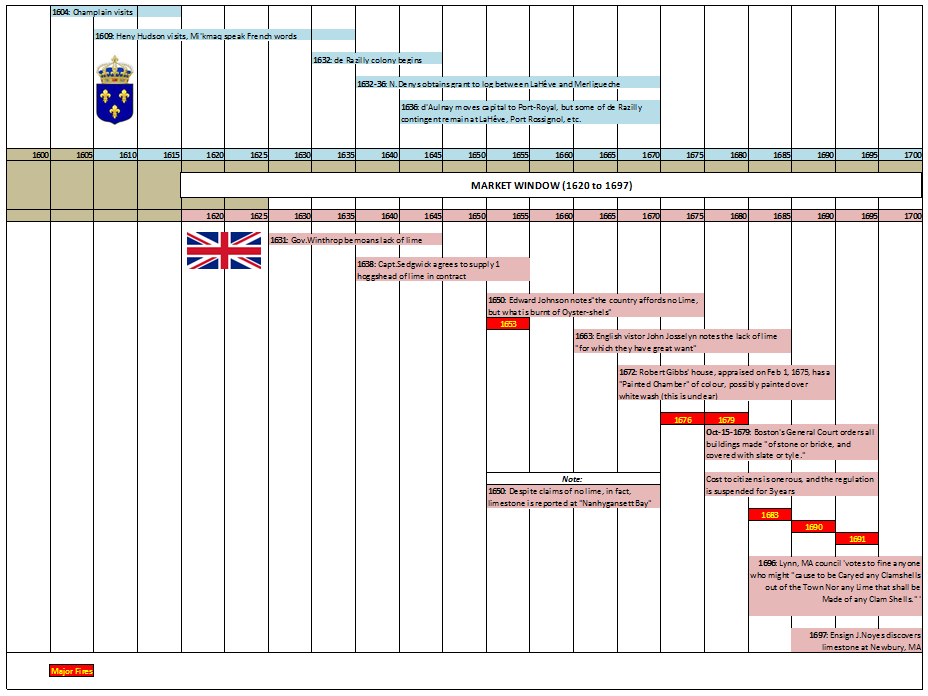Private triangle mercantilism
A smuggler’s entrepôt during the Ancien Régime? 
The puzzle:
- Lime was available for sale in 17th C Boston: And yet there were no known local deposits until 1697. Limeslake and whitewash [both gypsum (lower value substitute); and limestone whitewash)] are high demand staples and higher demand, high status luxury items.
Hypothesis:
- The “treasure” of Acadia is gypsum and limestone deposits. Colonial supplies of limeslake and whitewash [both gypsum (lower value substitute); and limestone whitewash)] are scarce, taxed & controlled in New England and Placentia (Newfoundland). With British colonists substituting the lowest quality oyster shell whitewash in such quantity that harvesting is restricted to protect the oyster fishery.
Subordinate Hypotheses:
- The original idea: The “treasure” of Mahone Bay & Oak Island is lime and gypsum sold in lime-bereft 17th Century Boston. Acadia has 17th-18th century kiln works and some of the evidence may be submerged. Mi’kmaq, Dry Fishery traders and Acadian partners burnt the lime. Influential intermediaries smuggled untaxed lime into New England as a luxury product until 1697; whilst continuing to smuggle it as a private staple tradable in Acadia, and Placentia (Newfoundland), and every private ‘trade triangle’.
- Testing:
- Sample deposits: Obtain samples across Nova Scotia, New Brunswick, Maine, and Rhode Island** to compare with 17th C building plasters in Boston, MA.
- Bring aboard industrial and marine trade archaeologist with 17th C expertise, to develop hypothesized locations of shore-side works. This derived from proposal to calculate sea-level rise, reverse-engineered back to the 17th century. Idea: Archaeological markers been drowned by the 0.4m-1.4 meter (m) average sea-level rise, post-1604. This process is happening with current sea level rise, such as is being recorded at the Fortress of Louisbourg, Cape Breton Island.
Did the revolutionary ideas of English colonists originate from the Acadia trade?
- Acadians were famously disdainful of the distant French King and his corrupt bureaucracy.
- New Englanders: Harvested the roots of American revolutionary thinking during the private Acadian trade.
- With all this private trade: Circumventing French and English Lords Proprietors and Royal tax collectors, did American colonial tax-independence-mindededness get rooted in the diked marshlands of Port Royal, and Beaubassin, and Grand Pré?

** There is an anomalous report concerning a deposit in Rhode Island.
Larger image of timeline: here
Sailing Fleet Image: Public Domain